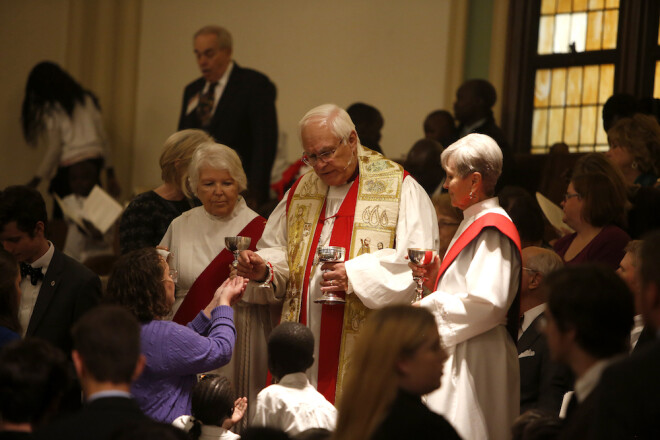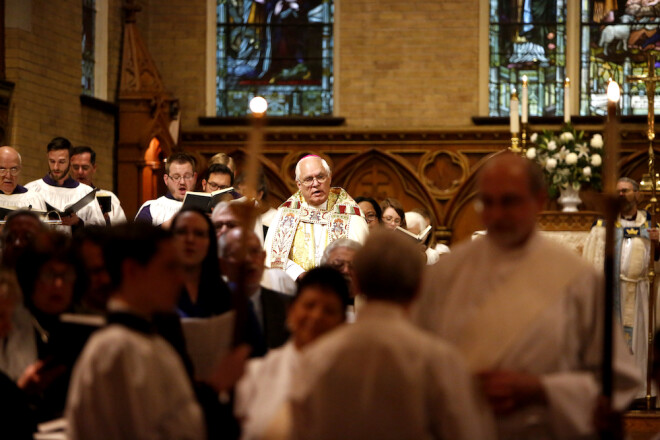AspACTS 2: Barnabas

AspACTS 2: Barnabas
Last time, we looked at how a handful of the first followers of Jesus went to the city of Antioch and began to share their faith in Jesus with non-Jews. This was mentioned in passing by Luke in Acts 11.20. But as I noted, it marked a huge turning point in the whole Christian story.
Here, I want to explore a central character in this event. I want to focus on a man named Barnabas.
We first meet Barnabas in Luke’s Acts of the Apostles in chapter 4.36-37. Here he is described as a generous man, a native of the island of Cyprus, and a Jew who belonged to the Levites. His given name was Joseph. He owned some property in Cyprus and he sold it and gave the proceeds to support the work of the Church. He had been given the nickname “Barnabas” – the only name we use to refer to him – because he was an encourager! A man who inspired and supported others.
We next meet him, of course, after Paul’s conversion to Christ. Paul had come down into Jerusalem from Damascus. (Acts 9.26-30) Not surprisingly, Paul wasn’t greeted warmly. In fact, Luke simply says the Christians were afraid of him. “But,” says Luke, “Barnabas took him . . .” In fact, Barnabas took him into his own home and fed him, and finally introduced him to the larger community. Tradition says that Barnabas and Paul were both students of the teacher Gamaliel. Whether or not that it is true, Barnabas came to know Paul as a fellow Christian at a fairly deep level and in a fairly short time, for Luke says it was Barnabas who actually told Paul’s story before the Jerusalem leadership. It was Barnabas’ support that made it possible for Paul to be received, finally, into the Christian fellowship. And Paul spent many days “going in and out among them” – that is, enjoying freedom and giving his own witness to the risen Christ.
When some outside the fellowship plotted to bring Paul down, the disciples protected him and brought him to Caesarea for the trip home to Tarsus – and no doubt Barnabas was the leader of that effort. I suspect that Barnabas even booked Paul for the boat trip from Caesarea. Talk about encouragement!
Next, we find Barnabas being sent to Antioch, in Acts 11.22. It is a fascinating episode. We recall that, Because of the persecution that led to the martyrdom of Stephen, some disciples – men of Cyprus and Cyrene – came to the important city of Antioch in Syria. They preached, taught, worshipped and lived their faith in that place, and shared the Jesus story with non-Jews. A church community took root and began to flourish. Something like that had happened in Samaria a few months earlier. In that case, the Jerusalem Church sent no less than Peter and John to inspect the work. They came back, testifying to the fruit the Spirit was bringing about in this first outpost of the Christian faith. So when word reached them of this new effort in Antioch, the leadership determined to send out another inspector: and they settled on Barnabas.
The choice was fitting, and says a lot about the man himself. He was sound. He was trusted. More to the point, Barnabas was a man of Cyprus like those who first shared Jesus with non-Jews.
And . . . he was an encourager. Luke simply says, “He was a good man, full of the Holy Spirit and faith.” In some translations, Barnabas’ name is said to mean “son of comfort.” But the Greek word behind that characterization is actually “paraclete,” the very word Jesus had used to refer to the Holy Spirit. This word means one who brings strength and support, who defends and inspires. This was the kind of man Barnabas was: Spirit filled and Spirit driven.
Barnabas’ work was blessed. We don’t know how long Barnabas worked in Antioch on his own. What we do know is that once he arrived, the Church at Antioch grew even more amazingly.
Things must have gotten exciting and complicated in pretty short order. Barnabas was wise enough to recognize both the challenges and the possibilities. And he knew what help was needed. He also knew where to look. I have always been impressed by this part of Barnabas’ character.
Luke says, “Barnabas went to Tarsus to look for Paul.” (Acts 11.25) I think two things were going on in this man’s heart and mind: first, he saw the opportunities and knew that he needed help. Second, I think he was looking for a way to use Paul’s own gifts – his sense of call, his ability to preach, and his passion for mission. It was this passion that Barnabas had stressed when he told Paul’s story to the Jerusalem leadership, according to Luke.
Once again, Luke telescopes things: Barnabas had to expend some real effort and likely expense to find Paul. Tarsus was itself a large town. It was about 90 miles northwest of Antioch (as the crow flies). And Barnabas had no GPS to guide him, or even an address if he had! The verb, “look for” implies a diligent and exacting search. But Barnabas was successful. He found Paul, and, more importantly, convinced him to come to Anticoh.
They must have made quite a team. Paul would be preaching about the resurrection – that was his great theme. Barnabas was always engaging and encouraging the community. Both made Christ the center of their lives and, in turn, that of the whole community. And it took! It is here in Antioch that the disciples of Christ were first called “Christians” – Christianoi– which means “little Christs”. It is easy to imagine how this came about: “Those people,” the outsiders would say, “all they do is talk about Christ. Christ this, Christ that! They’re just a bunch of little Christs!” It was intended as a put down – but became a badge of honor!
Our reflection ends at a very poignant, and highly significant point. A famine befell Jerusalem. (Acts 11.27) The “little Christs” in Antioch were determined to help their brothers and sisters in that holy city through this difficult time. They had freely received – they knew they had to freely give. And they decided to give not just money, but something more – something of themselves. (Acts 11.20) They took up the collection and gave it to Barnabas and Paul to take it to Jerusalem. And you know what I think? I think they gave it to Barnabas – he was, after all the Rector of the parish. And I think it was Barnabas who decided that Paul, his curate, would go along with him. It would be just like him – encouraging not only the Jerusalem Christians with a gift, but Paul himself with a share in the joy.
Barnabas is called an Apostle because of those wonderful Christianoiin Antioch. They weren’t content to keep the Gospel to themselves. They had a daring vision, no doubt inspired by the very people who led them. And they determined to plant new churches: so they prayed, they gave, and they commissioned their rector and curate and told them to go – “we’ll take care of things at home. You go out and make new Christianoi!”
So much more could be said. It is one of the most fantastic stories in the Bible, I think. And clearly, Barnabas emerges from it all as one of the most able and inspirational characters in Scripture. We will look at that part of the story next.
Barnabas never wrote anything that we know of – and yet, without him, we would never have heard of Paul in all likelihood. And consider what that means: we would never have had the New Testament that we now have! We would not have any of Paul’s letters! For that matter, because Paul later enlisted Luke as a co-worker, we would never have had the Acts! We would, incidentally, never have had Luke’s Gospel – and its memorable retelling of the Jesus Story – No prodigal son parable, no good Samaritan parable, no angels watching their flocks by night, no Emmaus road encounter! And the Church may never have moved as soon, as quickly or as widely into the ancient world, and especially Europe, as it did!
Barnabas did not do all this by himself. But he was one who encouraged his fellow Christians in ways that led to all of it. He was a connector as well – he connected the Church at Antioch to the Christians in Jerusalem and Judea, and he connected Paul with that work and enabled him to fulfill the Lord’s commission to him.
Truly, “He was a good man, full of the Holy Spirit and faith.”!




